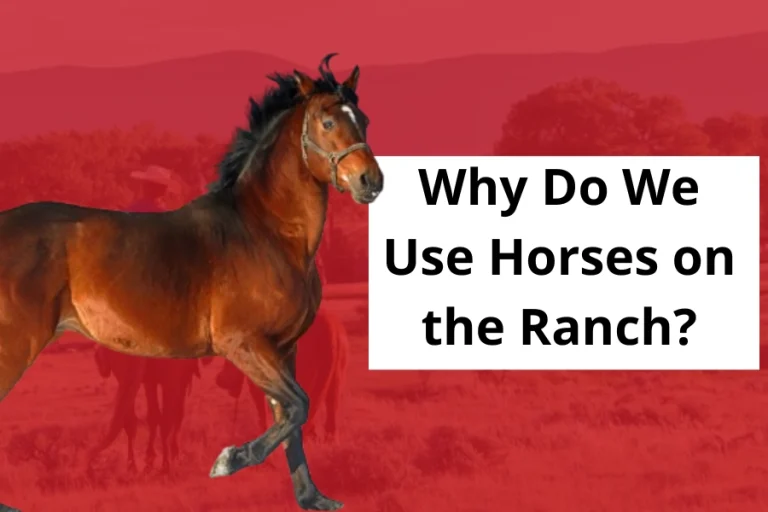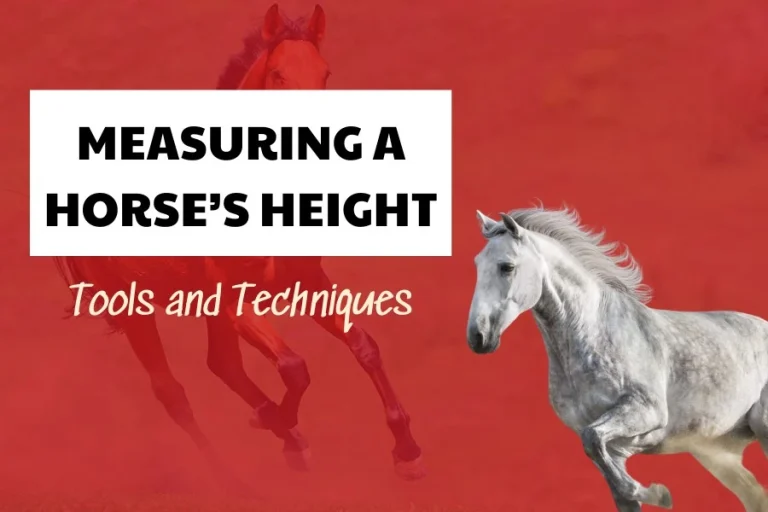Do Horses Sleep Standing Up? The Surprising Truth Revealed
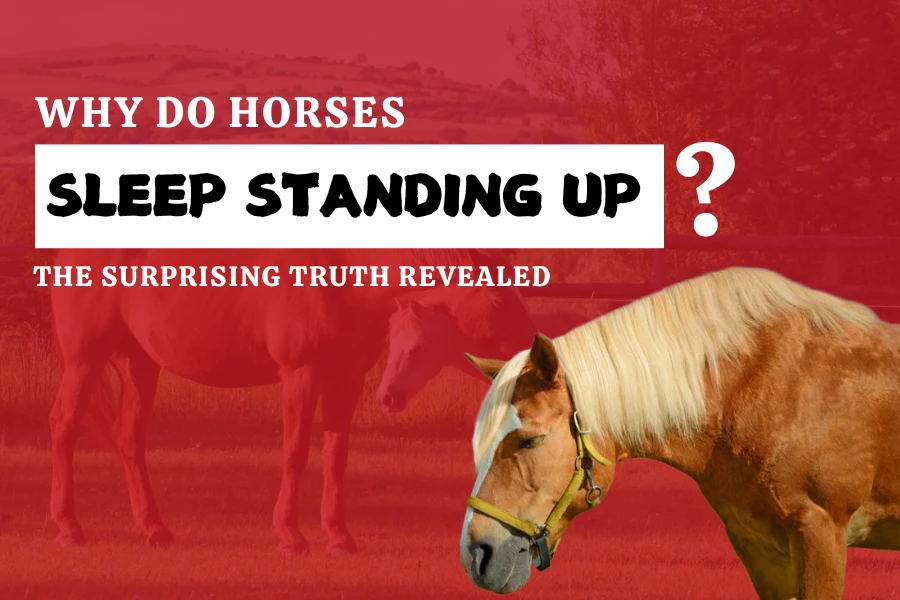
The horse is one of the most interesting creatures walking face to the earth. They hold a lot of peculiar behavior that oftentimes leaves us in awe. And an interesting fact you may want to know is that horses sleep while standing. This incredible adaptation evolved over thousands of years, allowing horses to be rested while remaining alert and ready to flee from predators. But how does this get done, and why is it so important?
In this article “Do Horses Sleep Standing Up?”, we are going to look into the surprising truth behind why horses sleep standing up and analyze what advantage it gives to them.
Why Do Horses Sleep Standing Up?
There are many surprising things about horses, for example, horses wear blinders while racing, or neigh to welcome their owners. But, it is the most surprising behavior in them for most humans that horses can sleep standing up. Well, it’s true. But they do have a lying-sleep as well. The decision to sleep standing up or lying down will depend on several factors, including the horse’s need for deep sleep, their surroundings, and their sense of security.
Why do horses sleep standing up? This sleep pattern is one of the most fascinating features of their evolution that helped them survive in the wild. Horses are always on their guard because they are a prey species. Thus, by sleeping while standing up, they can easily wake and run away in case of any danger.
Another reason for “Why do horses sleep standing up” is due to their large size. Long periods lying down would be uncomfortable on the internal organs of their bodies and more difficult to rise from, especially on hard ground. This way, horses avoid all these problems while they rest by sleeping while standing.
How Can Horses Sleep While Standing Up?
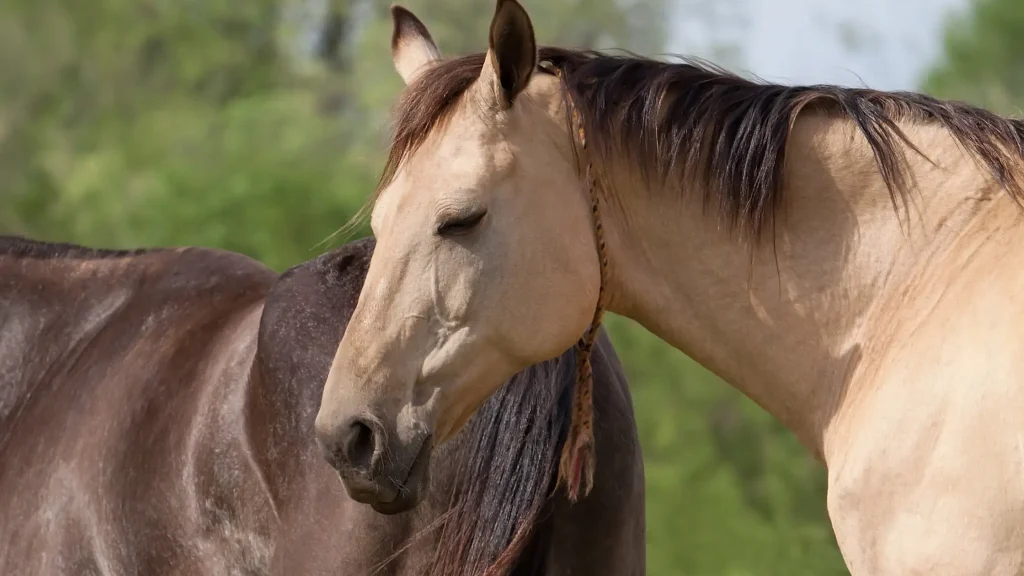
Do horses sleep standing up? Yes, they do. Such behavior is made possible due to a specific system of tendons and ligaments popularly referred to as the “stay apparatus.” It is the stay apparatus that can lock their legs in position, providing the ability to remain standing upright without actually having to put much muscle effort into doing so. Through this system, it supports most of the weight of a horse and keeps its joints in a position such that the legs do not buckle.
Sleeping Stages Of Horses
Do horses sleep standing up? As mentioned above, horses can sleep both standing and lying. And those are also related to the 3 main sleeping stages of horses as below.
Slow-wave Sleep Stage (SWS)
Normally they will go into light sleep during a standing position, and this is termed slow-wave sleep. During a SWS, the muscles of horses will relax slightly but still are ready to wake up quickly. When sleeping in this way, they can pay attention to their surroundings while letting their muscles get rest.
This is an evolutionary mechanism that allows horses to look out for predators while resting and be prepared for a quick getaway. The horses can enter the slow-wave sleep stage many times during the day and night.
Deep-Sleep Stage (REM)
However, to reach the next level of sleep, which is needed for more restoration, horses will need to lie down. This stage is crucial for mental and physical recovery. Since the horse’s muscles relax completely during the deep sleep stage (REM – Rapid Eye Movement), which cannot be done while standing, horses will lie down.
Horses usually go into REM sleep when they feel perfectly safe and comfortable in their environment. In the wild, some horses would lie down while others stood guard. In a stable or safe pasture, domesticated horses are more likely to lie down for this essential deep sleep.
Transitional Sleep
It is the stage between wakefulness and SWS or between SWS and REM sleep. It is a short phase during which the horse may change its position or relax further before falling into deep sleep.
How Long Do Horses Sleep Standing Up?
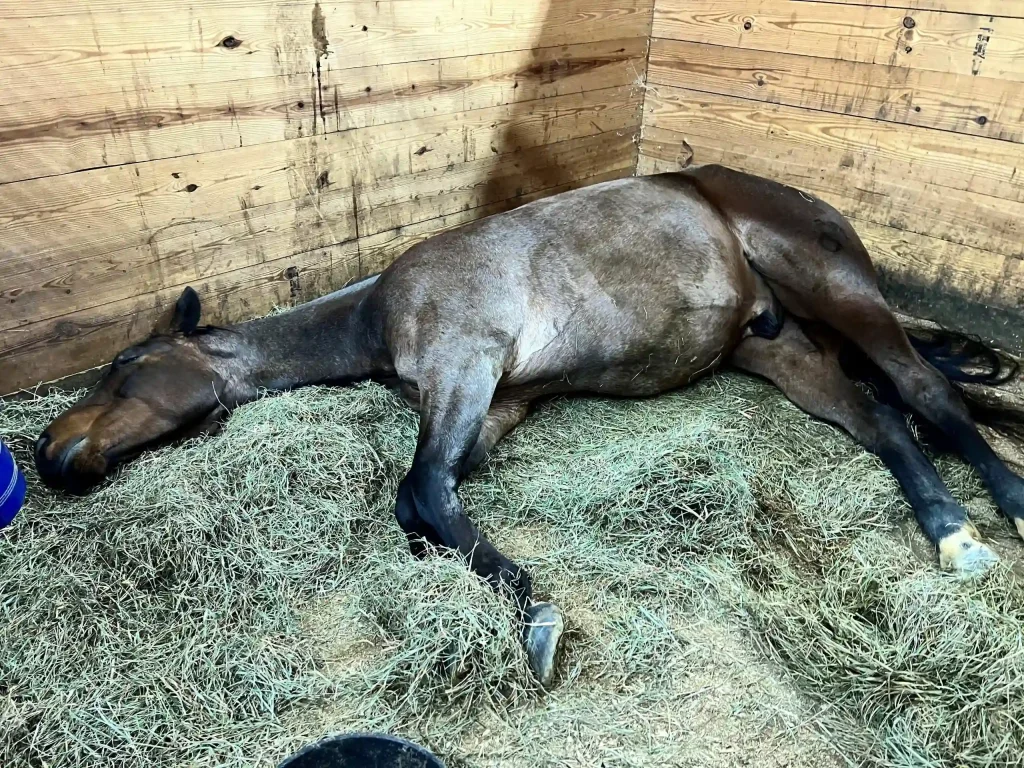
While humans need 7-8 hours of continuous sleep every night, horses need only around 5 hours, further divided into bits spread over the day and night. Of this, only 30 minutes to 1 hour is spent in REM sleep, which means a restful sleep. However, horses can only lie down the longest for 45 minutes to avoid so much pressure on their body.
And how long do horses sleep standing up? Horses are polyphasic sleepers, which means they take short naps for 15-20 minutes throughout the day and night rather than one long sleep. While horses can stand up and get most of their sleep during these short naps, they have to lie down for at least part of their REM sleep.
The total amount of sleep varies according to age, health, and environment. Foals spend more time lying down or sleeping compared to adult horses. Older horses also need to lie down often to rest their aged bodies.
FAQs
If there is a loss of sleep in horses, it may lead to behavioral changes, loss of balance, or poor performance. Long-term sleep deprivation leads to a drop in immunity. Thus, the horse becomes susceptible to most horse diseases. Besides, it can lead to muscle fatigue, loss of appetite, and too much tension or anxiety. In severe cases, horses may even collapse from trying to enter REM sleep while standing. This means that rest is very important for their well-being.
Yes, horses do dream while sleeping, particularly during the REM phase of sleep, just like humans and many other animals. You may find some horses moving their legs, making sounds, or twitching when sleeping. It means that they are dreaming.
Last Words
Do horses sleep standing up? While horses can stand even while sleeping, that is not the whole story. They can doze off and fall into light sleep when standing due to a special locking mechanism in the legs that allows them to relax without falling. However, they must lie down to enter a deep, restful REM sleep, which is very necessary for their welfare. This surprising truth explains the special adaptations of horses in the wildlife.

